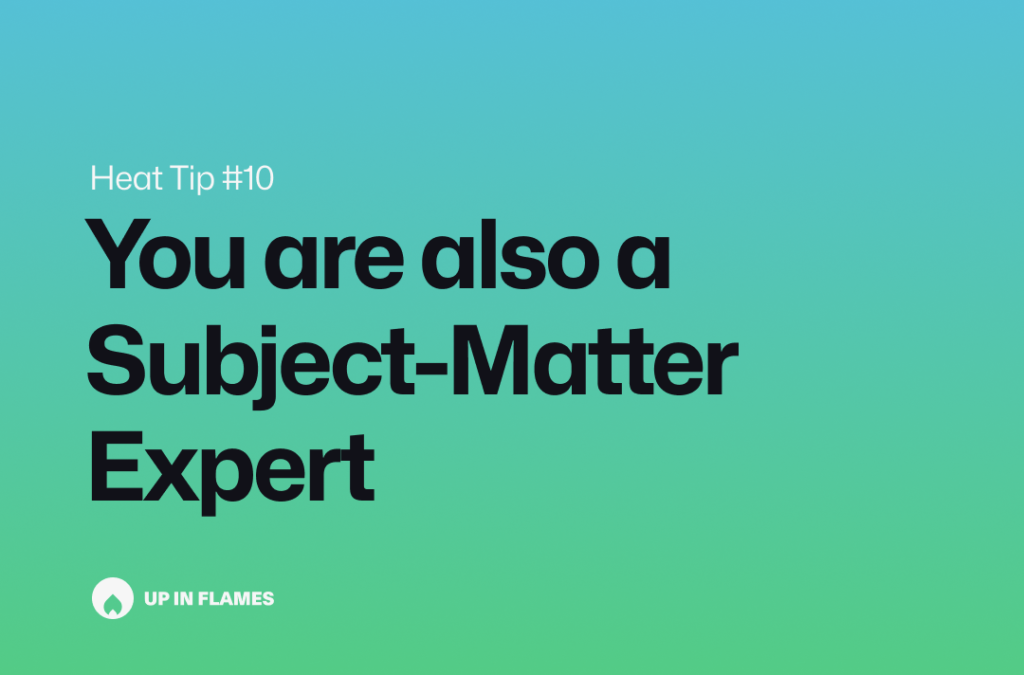As any digital professional, being a subject-matter expert (SME) is non-negotiable. Don’t be a middleman moving boxes from A to B while clueless about your project’s creative, development, or analytics. You must be knowledgeable and engaged rather than passing the buck to someone else.

The Importance of Subject-Matter Expertise
Uou must understand the core aspects of your project. Here’s why being a SME is crucial:
- Credibility and Trust: If you lack the necessary expertise, your team and stakeholders will question your decisions and judgment. Why should they rely on you if you don’t understand the nuances of your field?
- Effective Scheduling, Tracking, and Roadmaps: How can you create realistic schedules or keep the project on track if you don’t understand the intricacies of the tasks? Knowing what you’re talking about is essential to managing timelines and expectations effectively.
- Leadership and Guidance: You are the brain, the catalyst of the entire operation. You’re not leading without foundational knowledge—just getting in the way.
Avoid Being a Parrot
Too often, professionals defer to the “subject matter expert” without trying to understand the request themselves. Don’t be a parrot, mindlessly repeating what you hear. You must digest and comprehend the information to provide valuable input and direction.
Striking the Right Balance
While you don’t need to know everything, you need a baseline knowledge of your field. Here’s how to strike the right balance:
- Continuous Learning: Regularly update your knowledge about the industry, tools, and practices relevant to your project.
- Engage with Your Team: Spend time with your creative, development, and tracking teams. Understand their workflows, challenges, and needs. When you learn something new, write it down.
- Ask Questions: If you’re not sure about something, ask. But make sure you understand the answer and how it impacts the project as a whole. Learn how to listen and ask the right questions at the right time.
- Hands-On Experience: Get hands-on with your team’s tools and processes whenever possible. This firsthand experience is invaluable and helps you better understand why things are how they are for your team. It’s the best way to build empathy with your team’s work.
Conclusion
I expect you to be the subject matter expert in the field in which you’re operating. You don’t have to be the top expert. After all, you cannot do everything all at once. But you need enough knowledge to manage effectively, provide guidance, and make informed decisions. Don’t just move tasks around—engage, understand, and lead. Remember, the success of your project depends on your ability to be the brain and the catalyst of the operation.

